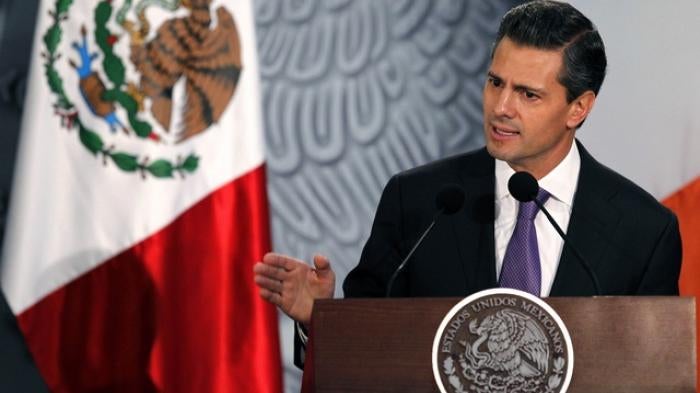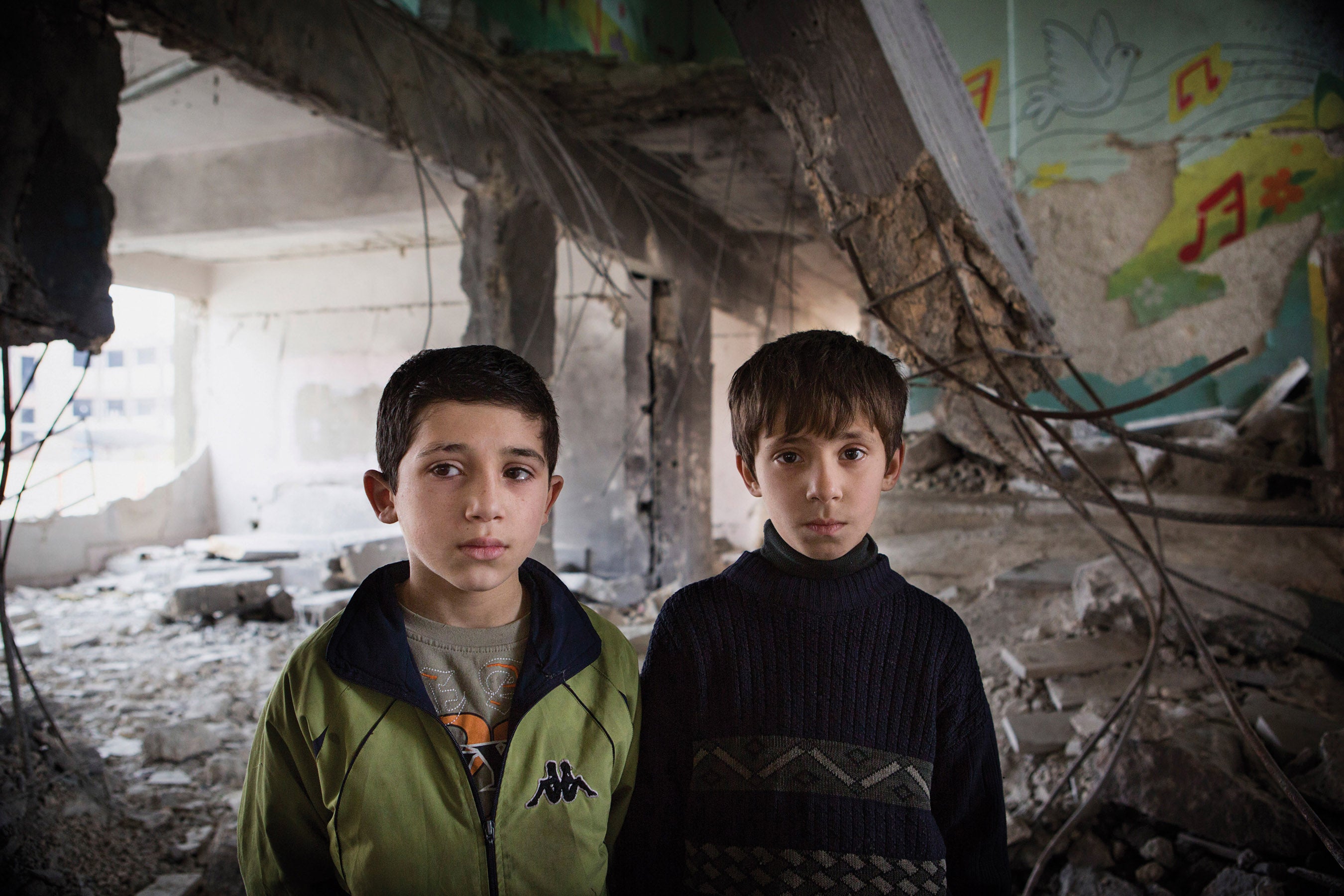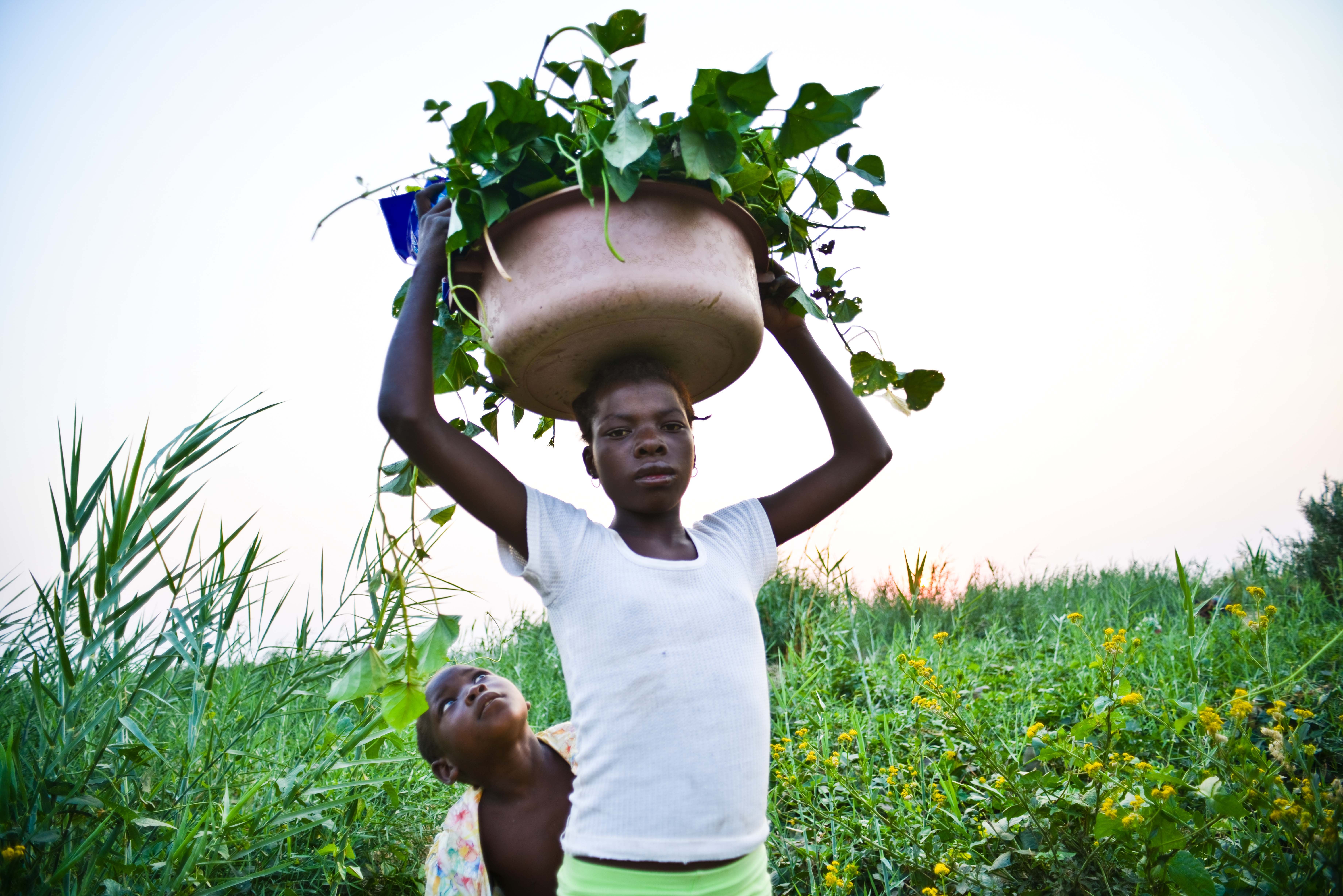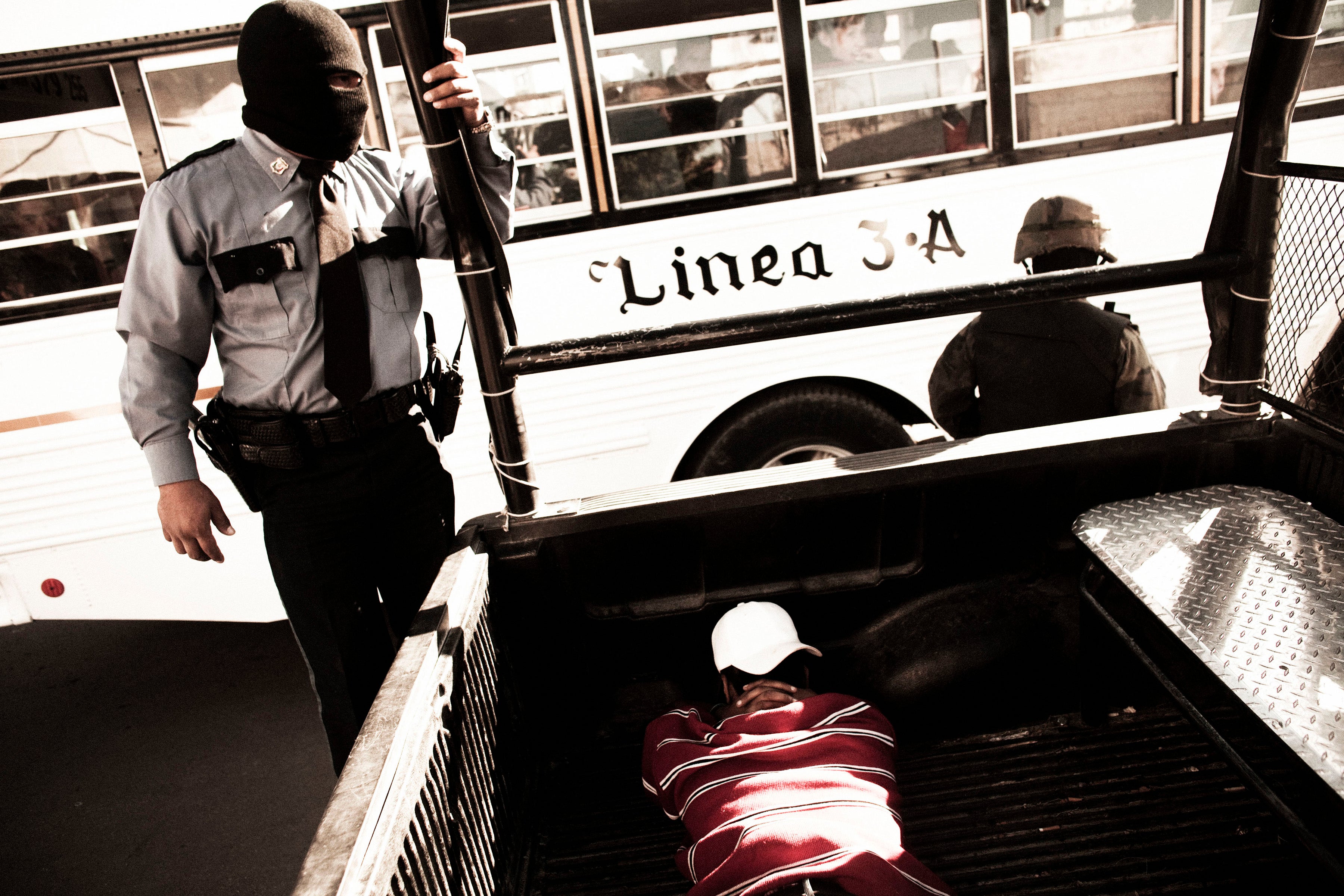Upon taking office in December 2012, President Enrique Peña Nieto acknowledged that the “war on drugs” launched by predecessor Felipe Calderón had led to serious abuses by the security forces. In early 2013, the administration said that more than 26,000 people had been reported disappeared or missing since 2007—a problem it called a “humanitarian crisis”—and promulgated broad legislation aimed at ensuring victims’ rights.
Yet the government has made little progress in prosecuting widespread killings, enforced disappearances, and torture committed by soldiers and police in the course of efforts to combat organized crime, including during Peña Nieto’s tenure. Members of the military accused of human rights violations continue to be prosecuted within the biased military justice system, ensuring impunity. Some criminal suspects can be held for 80 days without charge under the arraigo provision.
Disappearances
Mexico’s security forces have participated in widespread enforced disappearances since former President Calderón (2006-2012) launched a “war on drugs.” Members of all security force branches continue to carry out disappearances during the Peña Nieto administration, in some cases collaborating directly with criminal groups. In June 2013, Mexico’s National Human Rights Commission (CNDH) said it was investigating 2,443 disappearances in which it had found evidence of the involvement of state agents.
Prosecutors and police routinely fail to carry out basic investigative steps to search for missing people or to identify those responsible for disappearances, often blaming victims and telling their families to investigate. Families of the disappeared may lose access to basic social services that are tied to the victim’s employment, such as child care.
In February 2013, the Peña Nieto administration acknowledged that more than 26,000 people had been reported disappeared or missing since December 2006. In May, the government created a unit in the Federal Prosecutor’s Office to investigate enforced and other disappearances, but at time of writing it had not demonstrated meaningful progress in criminal investigations or searches for the victims. Mexico still lacks a national database for disappeared people, and a national database of thousands of unidentified human remains, many of which were found in mass graves.
Military Abuses and Impunity
Mexico has relied heavily on the military to fight drug-related violence and organized crime, leading to widespread human rights violations. From December 2006 to mid-September 2013, the CNDH received 8,150 complaints of abuse by the army, and issued reports on 116 cases in which it found that army personnel had committed serious human rights violations.
The soldiers who commit these abuses are virtually never brought to justice, largely because such cases continue to be investigated and prosecuted in the military justice system, which lacks independence and transparency. The Military Prosecutor’s Office opened over 5,600 investigations into alleged abuses by soldiers against civilians from January 2007 to mid-2013. However, as of October 2012, military judges had sentenced only 38 members of the military for human rights violations.
At time of writing, the Senate’s Justice Commission was considering a proposed reform to the military justice code that would aim to ensure that abuses committed by members of the military against civilians were handled in the civil justice system.
Torture
Torture is widely practiced in Mexico to obtain forced confessions and extract information. It is most frequently applied in the period between when victims are arbitrarily detained and when they are handed to prosecutors, when they are often held incommunicado at military bases or other illegal detention sites. Common tactics include beatings, waterboarding, electric shocks, and sexual torture. Many judges continue to accept confessions obtained through torture, despite the constitutional prohibition of such evidence.
Justice officials rarely apply the Istanbul Protocol, a set of principles to assess a potential victim of torture or ill-treatment. The Federal Prosecutor’s Office applied the protocol in 302 cases from 2003 to August 2012, and found signs of torture in 128. Yet during this period it only opened 39 investigations for torture, none of which led to convictions. Between January and September 2013, the National Human Rights Commission received more than 860 complaints of torture or cruel or inhuman treatment by federal officials.
Criminal Justice System
The criminal justice system routinely fails to provide justice to victims of violent crimes and human rights violations. Causes of this failure include corruption, inadequate training and resources, and the complicity of prosecutors and public defenders. In response to the demands of a broad-based movement, Mexico enacted a Victims Law in January 2013 intended to ensure justice, protection, and reparations for victims of crime. At time of writing, implementing regulations had not yet been passed. The failure of law enforcement has contributed to the emergence of new armed citizen self-defense groups in some parts of the country.
In 2008, Mexico passed a constitutional reform to transform its inquisitorial, written justice system to an adversarial, oral one. But implementation of the reform, which authorities have until 2016 to complete, has been sluggish. At time of writing, only 3 of Mexico’s 32 states had fully implemented the reform, while 13 had partially transitioned to the new system.
The reform also introduced the provision of arraigo, which allows prosecutors, with judicial authorization to hold organized crime suspects for up to 80 days before they are charged with a crime. In April 2013, the House of Representatives passed reforms to reduce the maximum time that such individuals can be held without charge to 35 days, rather than eradicating the measure. The Senate still had not approved the reform at time of writing.
In September 2013, the Supreme Court ruled that rights guaranteed by international human rights treaties have equal weight to those guaranteed by the constitution. However, in cases where the constitution expressly limits a right, this limitation would prevail over international treaties—a restriction that cuts against the pro homine principle that requires states to interpret legal obligations in the way that best protects the human rights of the individual.
Prison Conditions
Prisons are overpopulated, unhygienic, and fail to provide basic security for most inmates. Prisoners who accuse guards or inmates of attacks or other abuses have no effective system to seek redress.
Approximately 65 percent of prisons are controlled by organized crime, and corruption and violence are rampant, according to the CNDH. Some 108 inmates had died in 2013, as of November.
Freedom of Expression
Journalists, particularly those who report on crime or criticize officials, face harassment and attacks. At least 85 journalists were killed between 2000 and August 2013, and 20 more were disappeared between 2005 and April 2013, according to the CNDH. Authorities routinely fail to adequately investigate crimes against journalists, often preemptively ruling out their profession as a motive.
Journalists are often driven to self-censorship by attacks carried out both by government officials and by criminal groups, while under-regulation of state advertising can also limit media freedom by giving the government disproportionate financial influence over media outlets.
Mexico created a special prosecutor’s office for Crimes against Freedom of Expression in 2006, but to date it has obtained only one criminal sentence from the 378 investigations it has opened. Legislation enacted in May 2013 gave the Federal Prosecutor’s Office power to take over any investigation into attacks on media.
Gender-Based Violence
Mexican laws do not adequately protect women and girls against domestic violence and sexual violence. Some provisions, including those that make the severity of punishments for some sexual offenses contingent on the "chastity" of the victim, contradict international standards. Women and girls who have suffered these types of human rights violations generally do not report them to authorities, while those who do generally face suspicion, apathy, and disrespect. In January 2013, Mexico amended its law on violence against women to expedite emergency protection measures for victims of gender-based violence.
Reproductive Rights
In August 2008, the Supreme Court affirmed the constitutionality of a Mexico City law that legalized abortion in the first 12 weeks of pregnancy. Since that time, 16 of Mexico's 32 federal entities have legislated to recognize the right to life from the moment of conception, limiting women’s ability to exercise their right to health. In 2010, the Supreme Court ruled that all states must provide emergency contraception and access to abortion for rape victims. However, in practice many women and girls face serious barriers to accessing abortions after sexual violence, including inaccurate information and intimidation by officials.
Marriage Equality
In August 2010, the Supreme Court recognized the right of same-sex couples in Mexico City to adopt children and to marry, and ruled that all 31 Mexican states must recognize same-sex marriages that take place in Mexico City. Yet the ruling does not require that states recognize the right themselves, and many still deny same-sex couples the right to marry. In December 2012, the Mexican Supreme Court struck down a law in Oaxaca that defined marriage as being between a man and a woman.
Access to Palliative Care
Tens of thousands of patients face major and often insurmountable obstacles in accessing end-of-life care, even though Mexican law grants them a right to such care. Health insurance schemes do not yet adequately address the health needs of incurable patients; drug control regulations unnecessarily restrict access to morphine, an essential medication for severe pain; and training in palliative care for healthcare workers remains insufficient.
Migrants
Hundreds of thousands of undocumented migrants pass through Mexico each year and many are subjected to grave abuses en route—such as disappearances and sexual violence—at the hands of organized crime, migration authorities, and security forces. Authorities have not taken adequate steps to protect migrants, or to investigate and prosecute those who abuse them. Despite the approval in 2011 of a new migration law ostensibly aimed at protecting migrants’ rights, police continue to detain and harass undocumented migrants.
The staff of migrant shelters face threats and harassment from criminal groups and officials, yet the government has failed to implement protective measures granted to these centers by national and international human rights bodies. At least three migrant centers were forced to close or saw staff forced to flee in 2013.
In September, the Federal Prosecutor’s Office authorized the creation of a team, including international forensic experts, to identify more than 200 human remains thought to belong to migrants.
Labor Rights
The dominance of pro-management unions continues to obstruct legitimate labor-organizing activity. Independent unions are often blocked from entering negotiations with management, while workers who seek to form independent unions risk losing their jobs. A 2012 labor law failed to address the lack of transparency and democracy in the powerful pro-management unions, and failed to protect workers’ right to form independent unions and carry out collective bargaining.
Human Rights Defenders
Human rights defenders and activists continue to suffer harassment and attacks, often in the context of opposition to infrastructure or resource extraction “mega-projects.” In many cases, there is evidence—including witness testimony or traced cell phones—that state agents are involved in aggressions against human rights defenders. Of 89 aggressions against human rights defenders registered by the Office of the UN High Commissioner for Human Rights between November 2010 and December 2012, none resulted in a conviction.
In June 2012, Mexico enacted a law to protect human rights defenders and journalists. At time of writing, the protection mechanism created by the law had not been effectively implemented, with protective measures slow to arrive, insufficient, or incomplete in some cases. The mechanism suffers from too few and inadequately trained staff, delays in accessing funds, coordination failures with state-level institutions, poor dissemination to those at risk, and a lack of public support from high level government officials.
Key International Actors
The United States has allocated over US$2 billion in aid to Mexico through the Merida Initiative, an aid package agreed upon in 2007 without a year cap, to help Mexico combat organized crime. Fifteen percent of select portions of the assistance can be disbursed only after the US secretary of state reports that the Mexican government is meeting human rights requirements.
However, the impact of these requirements has been undermined by the fact the US State Department has repeatedly reported to the US Congress that they are being met, despite overwhelming evidence to the contrary, often citing vague and incomplete progress towards meeting the requirements, leading Congress to release the funds.
The UN special rapporteur on extrajudicial, summary or arbitrary executions conducted a fact-finding mission to Mexico in April-May 2013, and stated that extrajudicial executions by security forces were widespread and often occurred without accountability.
In October 2013, Mexico underwent its second Universal Periodic Review in the United Nations Human Rights Council, where key recommendations included placing human rights violations by the military under civilian jurisdiction, and strengthening the protection mechanism for human rights defenders and journalists.





